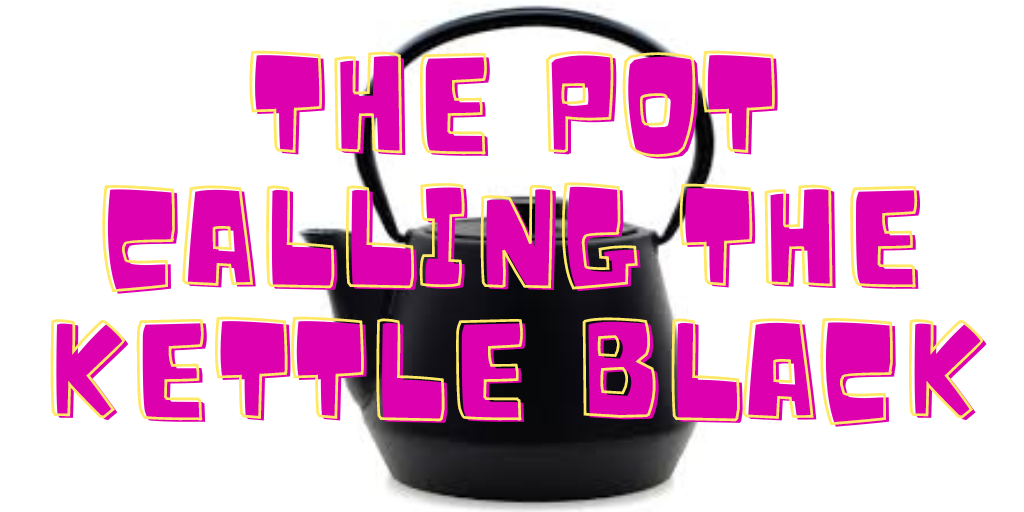The idiom “the pot calling the kettle black” is used to describe a situation in which someone is criticizing another person for a fault that they themselves also have. The phrase is often used to point out hypocrisy but it can also be used in a humorous way. For example, if someone is criticizing another person for being messy, you might say “the pot calls the kettle black.” This would be a humorous way of pointing out that the person who is criticizing is also messy.
However, the idiom is more often used in a more serious way. For example, if a politician is criticizing another politician for corruption, you might say “the pot calling the kettle black.” This would be a way of pointing out that the politician who is criticizing is also corrupt.
Origin of “The Pot Calling the Kettle Black”
The idiom is thought to have originated in the 16th century. The earliest known recorded use of the phrase is in a poem by John Heywood, published in 1546. The poem is entitled “Proverbs:The pot calls the kettle blacke, but both are blacke at length.” It begins:
The fault that most men fault in other,
They haue it in their owne selfe so sore
That they can scarce abide it should be tolde,
Yet of their fellowes in it take no hold.
And the final stanza goes like this:
So let vs all be wise and not be too hasty
To condemne others, but rather let vs learne
To amend our owne faults, and so we shall
Be sure to escape reproofe at the last.
The poem, like the idiom, is based on the observation that both pots and kettles are made of metal, and that both can become blackened by fire. When a pot calls a kettle black, it is essentially accusing the kettle of being dirty, when in fact the pot is just as dirty.

The pot calling the kettle black
The Shakespeare Connection
Shakespeare does not use the idiom “the pot calls the kettle black” but there is a very similar idea in Troilus and Cressida where Cressida says “The raven chides blackness.”
“The Pot Calling the Kettle Black” in Literature
- The poem by Heywood mentioned above
- “Pot calling the kettle black” is used with that wording by Thomas Shelton in his 1620 translation of Cervantes’ “Don Quixote.” Don Quixote is frustrated with the criticisms of Sancho Panza, one of which is that “You are like what is said that the frying-pan said to the kettle, ‘Avant, black-browes’.” The Spanish text at this point reads: Dijo el sartén a la caldera, Quítate allá ojinegra (Said the pan to the pot, get out of there black-eyes).
“The Pot Calling the Kettle Black” in Popular Culture
The idiom “the pot calling the kettle black” has also been used in popular culture. But here is a comment about its possible use in contemporary comedy: Steve Carell of The Office, in an interview about the rumblings of a revival of The Office, said: “Apart from the fact that I just don’t think that’s a good idea, it might be impossible to do that show today and have people accept it the way it was accepted 10 years ago. I just don’t know how that would fly now. There’s a very high awareness of offensive things today. Even to say “the pot calls the kettle black” is perceived as offensive.
Conclusion
The idiom “the pot calling the kettle black,” a centuries-old phrase, is still used today but in these times of political correctness it could be construed as offensive.




Leave a Reply
Want to join the discussion?Feel free to contribute!